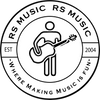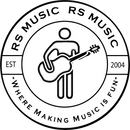A Prescription for Music Lessons

A Prescription for Music Lessons
Depression
Impacting 14.8 million people, depression is the most prevalent mental health issue for adults aged ≥ 55 years and accounts for 10% of all medical disability in the U.S. and Canada. About half the people diagnosed with depression also have an anxiety disorder, which can lead to smoking, drinking alcohol, overeating, and complicated health care issues. By 2020, depression is predicted to be the second most common disease in the world and cost employers about $23 billion in absenteeism.
Hays and Minichiello found that learning to read music and play the piano might enhance mood and certain aspects of the quality of living indicators in older adults. Those aged ≥ 65 years who participated in playing music reported improved self-esteem, greater independence, and fewer feelings of isolation. In addition, playing music created a temporary escape from the stress of daily life. Seinfield and colleagues compared a piano training group with a control group (nonplaying) and found that those who played piano experienced a decrease in psychological distress, depression, and fatigue. Playing an instrument can positively impact the well-being of older adults throughout life by promoting empowerment, autonomy, and social cohesion.
Manalai and colleagues found that a single episode of playing the piano was beneficial for a 91-year-old female patient who previously played when she was young and who was currently experiencing psychotic and depressive symptoms. Following playing, the patient’s vocabulary and insight temporarily improved. For the first time since her admission, the patient provided many details about her past mental and physical health. Even though the patient never played again, due to her delusional disorder, the improvement in mood and cognition were sustained for several months. The researchers noted that the patient’s temporary improvement may have been attributed to other factors.
Another study measured levels of anxiety, depression, and loneliness in senior citizens. Study participants who regularly participated in a keyboard class were less anxious, depressed, and lonely compared with the control group. Other studies support the idea that music can modulate emotional responses and enhance cognitive performance.
Mind Stimulation
As people age, they will experience progressive physiologic losses in function, such as auditory, cognition, memory, and motor control. Affect or mood can also be impacted. Consequently, there is a focus on promoting nonpharmacologic solutions that protect against age-related health issues. For example, musical training for adults that involves sensorimotor practice produces greater changes in the auditory cortex than does the equivalent experience involving only auditory training. Research indicates that age-related auditory decline can be mitigated by musical training. Evidence also supports cognitive stimulation, which may help reduce the likelihood of cognitive impairments in advanced age.
The brain works on a principle of “use it or lose it.” Therefore, exercising the brain is important, and musical training may fill that need. Learning a skill such as playing an instrument reorganizes the brain’s neural pathways. Brain plasticity is the ability of the brain to change its structure, and engaging older adults in sensory, cognitive, and motor activities creates positive outcomes. Research also indicates active participation in music lessons creates larger plasticity effects than does passively listening to music.Musical training provides a multisensory activity that requires integrating signals from different sensory modalities with motor responses.
Verghese and colleagues found that individuals who played a musical instrument were less likely to experience dementia than were those whose leisure activities consisted of reading, writing, and working crossword puzzles. Verghese suggested that 6 months of piano lessons in older adults improved the brain’s executive functioning (regulates abilities and behaviors) and working memory (ie, keeping track of information). Balbag and colleagues who conducted a study of twins found that “playing an instrument in older adulthood is significantly associated with reduced likelihood of dementia and cognitive impairment.”Musical training is also associated with improved visual memory and the ability to divide the individual’s attention between several activities. This ability is crucial for activities such as driving and is useful for navigating crowded areas, such as a mall.
Dexterity
Musical training also has been found to be beneficial for stroke survivors, because this type of training elicits a change in the reorganization of the sensorimotor cortex that results in improved movement quality. Piano playing can lead to meaningful improvements in manual dexterity, finger movement coordination, and functional use of upper extremities.
Zelazny studied the effects of keyboard playing on 4 older adults with osteoarthritis who over 4 weeks had 30-minute sessions of electronic keyboard playing 4 days per week. The researcher found that participants reported decreased arthritic pain, increased dexterity, and increased finger strength. Playing the piano requires both eye and hand coordination, which is essential as a person ages. Improved dexterity of fine motor skills can assist individuals with the activities of daily living, such as buttoning a shirt and using a remote control.
Stress Reduction
Life is filled with stressors, and anyone can have difficulty coping with daily stress. According to Toyoshima and colleagues, playing the piano can lower cortisol levels and decrease a person’s anxiety level. These researchers compared the activities of piano playing, calligraphy, and clay molding and found that playing the piano was significantly more effective at lowering stress levels when measuring salivary C-reactive protein levels and State-Trait Anxiety Inventory (STAI) scores.
Another study found stress reduction was significant for participants who played the keyboard compared with participants who relaxed, read magazines or solved puzzles. Stress has a negative impact on the immune system, which can increase an individual’s risk of disease. According to Mohd “emotional stress is a major contributing factor to the 6 leading causes of death in the U.S.: cancer, coronary heart disease, accidental injuries, respiratory disorders, cirrhosis of the liver, and suicide.”
PTSD and 'Guitars for Vets Program'
Guitars for Vets is a nonprofit organization with 25 chapters that uses music to assist veterans with physical and mental health injuries. The program provides free guitars and weekly music lessons taught by volunteers. The weekly music lessons create a forum for veterans to socialize and share personal experiences, thus contributing to their healing process. A randomized, controlled pilot study was conducted with veterans diagnosed with posttraumatic stress disorder (PTSD) who may have physical and mental changes such as self-isolation from others, night sweats, flashbacks, and depression.
The study participants had weekly private guitar lessons for 1 hour and a group learning session. The results showed positive outcomes in both PTSD and depression symptoms after 6 weeks of guitar lessons. One veteran with PTSD who participated in the Guitar for Vets Program stated, “I came here with some real serious anger issues; this takes my mind off everything.” This veteran noted that as he practiced, a peaceful feeling enveloped him and the memories of trauma faded.
Personal Experience
Following the completion of my PhD, I started piano lessons as a hobby. I also found engaging in playing music helped me to psychologically cope with the overwhelming stress of having a parent with a debilitating disease.
My dad was diagnosed with Parkinson disease, making it difficult for him to view life positively. Piano lessons helped him to mentally deal with his disease. Dad genuinely looked forward to his music lessons and was able to focus on practicing the piano rather than on his disease. I believe playing the piano prevented him from becoming depressed and kept him engaged, because he was accomplishing something.
Dad’s Parkinson disease has progressed; he is now in a nursing home. My gift to Dad is playing the piano for him. I sincerely believe it helps him cope with his disease or at least temporarily forget about it. His mood changes, and he becomes more animated. In his more lucid moments, we play music together. Playing music has a magical way of creating peace within the mind. Plato is often attributed with the quote, “Music gives a soul to the universe, wings to the mind, flight to the imagination, and life to everything.”
Conclusions
A healthful lifestyle includes holistically addressing issues pertaining to mental and physical well-being. Learning how to play a musical instrument is a workout for the brain, just as physical exercise is a workout for the body; both are necessary for optimal health. Evidence exists to support the hypothesis that playing an instrument elicits brain changes that positively influence cognitive functioning and decreases stress. Despite the lifelong benefits of playing an instrument, only about 8% of adults aged > 18 years play a musical instrument.
Playing a musical instrument provides health benefits without the adverse effects that accompany pharmacologic therapy. It also can help improve social skills and provide individuals with a sense of achievement. Group music lessons provide an opportunity for people to build bonds and positively affect lifestyle choices.
In addition, engaging individuals in learning to play music may decrease the cost of health care when considering treatments for depression, PTSD, and substance abuse. Playing an instrument may help decrease the need for antidepressants and provide a healthy recreational activity. Based on its physical and mental benefits, learning to play a musical instrument should be explored as complementary alternative medicine. Compared with filling prescription medications over an individual’s life-time, the cost of a portable keyboard is substantially less.
Given the benefits of increased coordination, social involvement, neural responses, and ability to focus along with improving fine motor skills and reducing stress, including music lessons as part of a veteran’s health care makes sense and is well worth further investigation and research.
Source:
National Library of Medicine: Debra Shipman, PhD, RN
Shipman D. A Prescription for Music Lessons. Fed Pract. 2016 Feb;33(2):9-12. PMID: 30766157; PMCID: PMC6368928.
Source Picture:
RS Music


